
Losing weight anywhere around the body is hard work, but getting rid of belly fat in particular can feel impossible. You can’t just tell a specific region of your body to speed up fat metabolism. But losing belly fat is worth the try because it is a dangerous location to store fat.
To create a list of the best ways to lose belly fat, 24/7 Tempo reviewed several studies on the measures taken to reduce total body fat and also consulted a registered dietitian for helpful tips regarding diet changes.
Belly fat is more likely to raise the amount of fat in your blood, increasing blood sugar levels and therefore increasing the risk of heart disease and type 2 diabetes.
Because shedding extra pounds around the waist is such a difficult task, it may require much more than crunches and planks. A consistent, well-rounded approach to well-being is needed.
The word “fat” has negative connotations for many people. Many people seem to think that fat is synonymous with obesity and poor health. But this is not true, and the body certainly needs fat — here is how everything we know about obesity is wrong.
Click here to see the 11 best ways to lose stubborn belly fat for good.
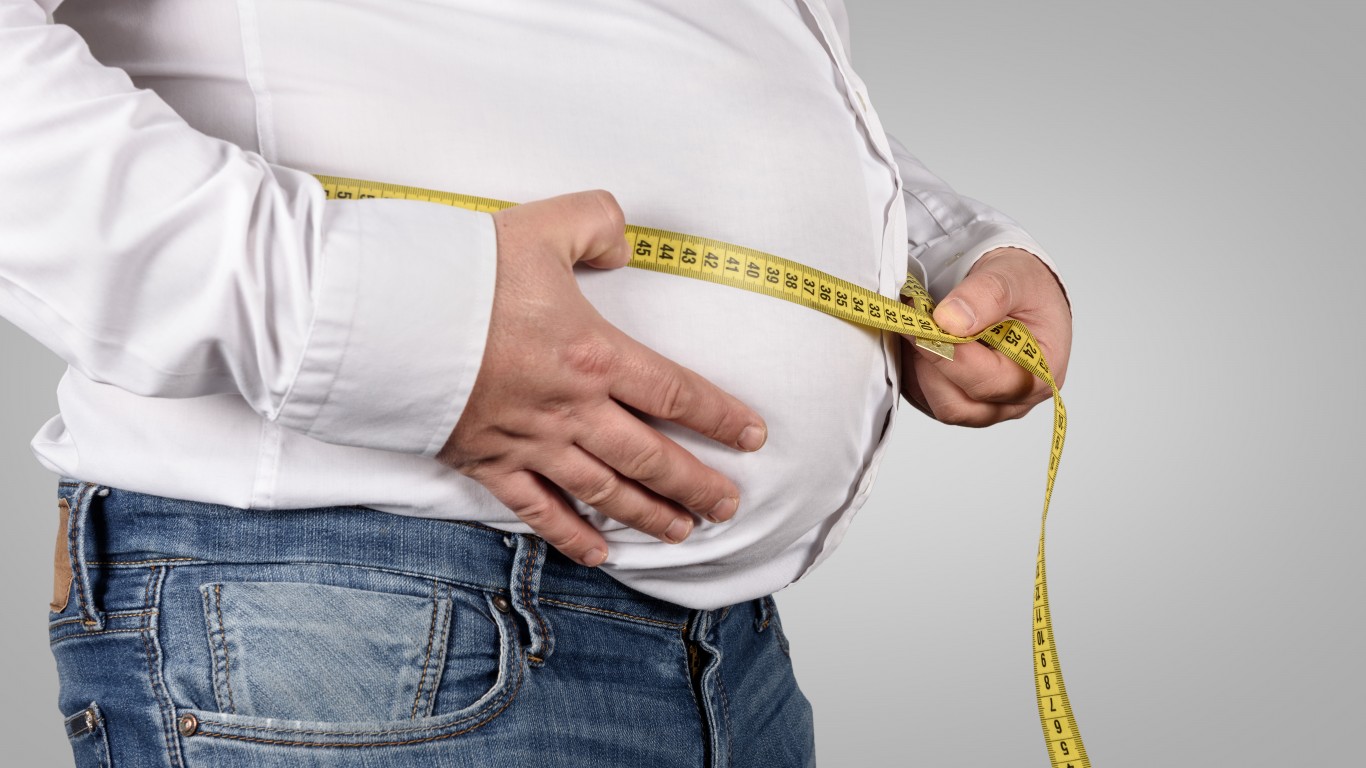
Don’t obsess over the belly alone
“It’s really difficult to target weight loss with specific areas of the body,” Amy Gorin, MS, RDN, a plant-based registered dietitian and owner of Plant-Based Eats in Stamford, Connecticut. If you’d like to lose weight, focus on getting rid of extra pounds in general. The weight will come off from all different parts of your body — including your belly, she added.
[in-text-ad]
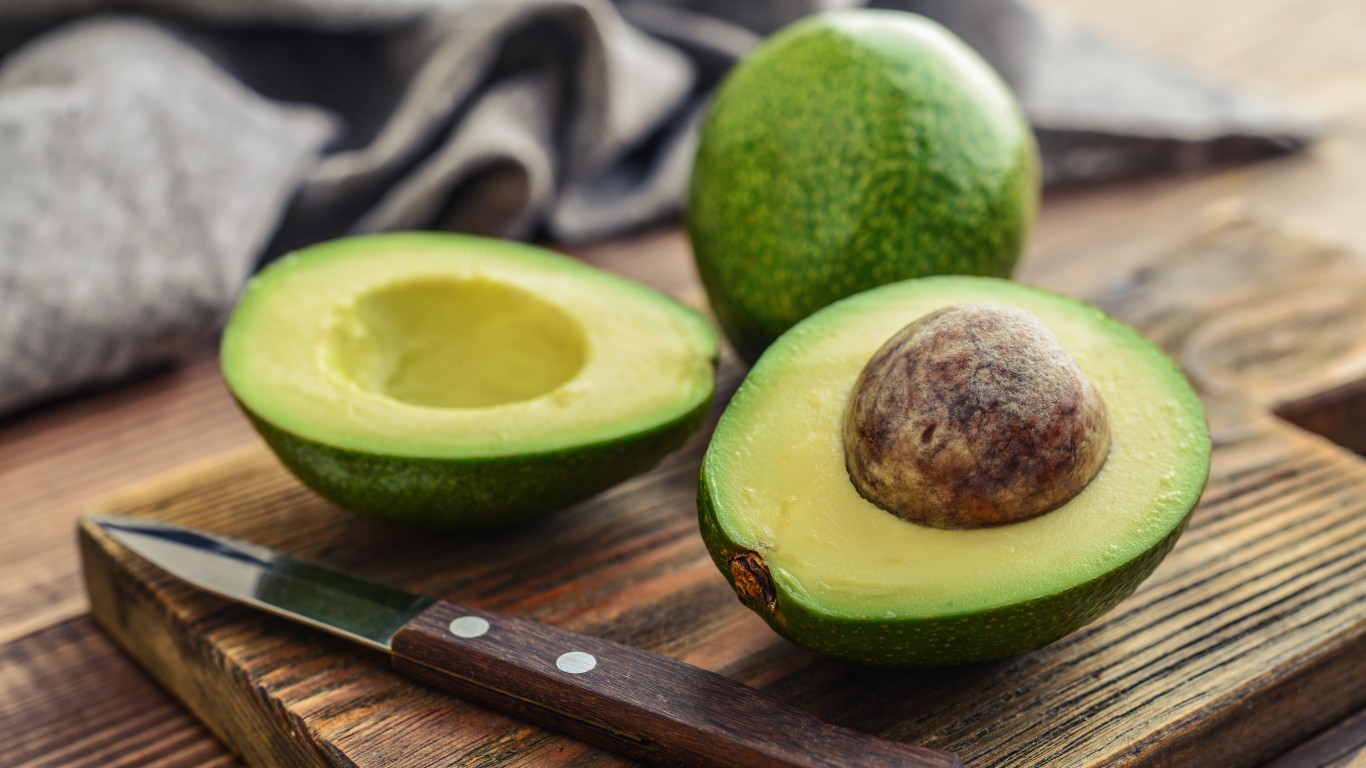
Increase your intake of soluble fiber
Soluble fiber absorbs water, helps slow down food as it passes through the digestive system, and blocks fat absorption. Research has indicated that soluble fiber — which can be found in avocados, legumes, and berries — promotes weight loss by helping people feel full for longer. It may also decrease the number of calories your body absorbs from food.
Soluble fiber may have a direct impact on belly fat, specifically. An observational study of more than 1,100 participants found that for every 10-gram increase in consumption of soluble fiber, belly fat gain decreased by 3.7% over a period of five years.

Do some strength training
“You can, of course, tone the muscles underneath the belly, which can help lead to a more defined look,” Gorin said. Resistance training is increasingly important as people age for several reasons, including reducing the accumulation of visceral fat. A 2013 study published in the International Journal of Cardiology showed that high-intensity resistance training induces faster belly fat loss on moderately obese people than cardio activity.

Drink fortified orange juice
“There is some research that shows some benefit to targeting belly fat with specific dietary changes,” Gorin said. In a study published in The American Journal of Clinical Nutrition, people who consumed 100 IU of vitamin D and 350 milligrams of calcium from fortified orange juice daily saw a larger decrease in belly fat, compared to people who didn’t drink the fortified orange juice.
[in-text-ad-2]
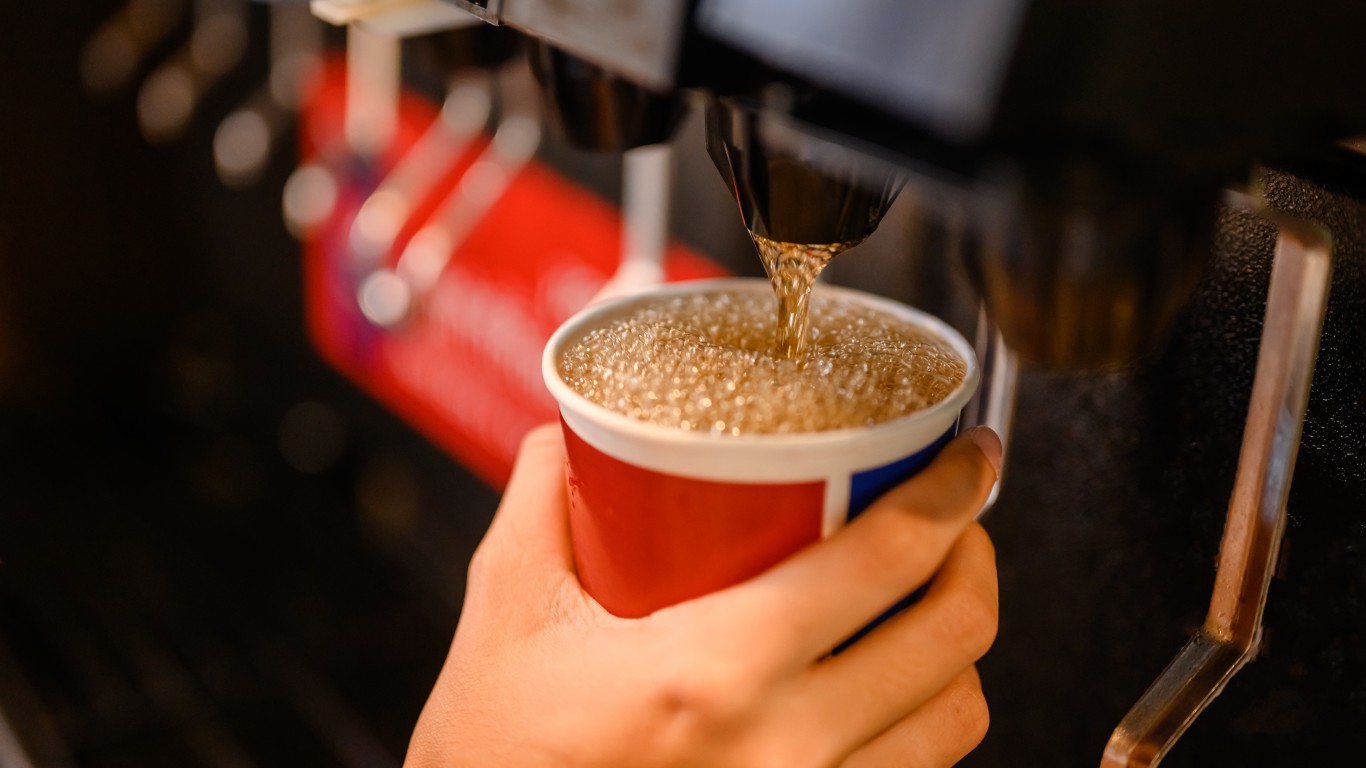
Avoid sugary drinks
If you are looking to lose belly fat, one food that is connected with increased belly fat is sugary beverages such as soda. Research published in Circulation found that regularly drinking these types of sugary beverages is connected with increased belly fat. If you enjoy carbonation, consider sweetening seltzer with a squeeze of fruit juice.

Stay away from foods with hydrogenated oils
“I recommend reading ingredient labels to make sure that a food does not contain any partially hydrogenated oils — which is a source of trans fats,” Gorin said. Consuming foods with trans fat such as partially hydrogenated vegetable oil may contribute to the accumulation of fat around the stomach, according to animal research at Wake Forest University School of Medicine. Over six years, monkeys were given foods containing trans fats, and all the extra weight they gained was distributed around the abdomen.
Trans fats are found in baked goods such as cookies and cakes, fried foods, margarine, coffee creamers, and microwave popcorn.
[in-text-ad]

Alcohol doesn’t have to be banned from your diet
“As with most things, just take an approach of moderation,” Gorin said. Some research has suggested that high alcohol intake is related to high waist circumference largely due to the amount of calories alcohol, especially beer, contains.
Also, consuming too much alcohol typically doesn’t make people feel great — and if you’re feeling less than stellar, you may be less motivated to continue with healthy habits like eating well and exercising, Gorin explained.
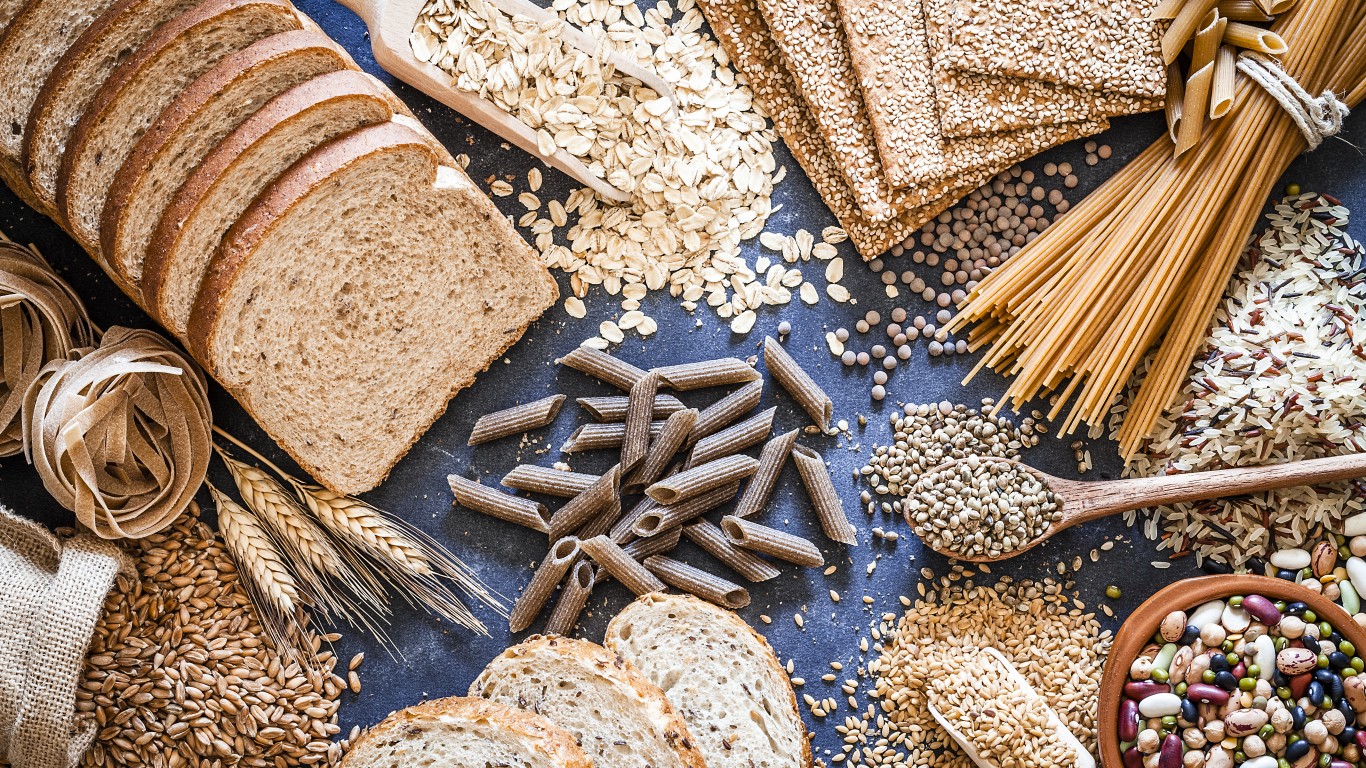
Eat carbs
“You need carbohydrates!” Gorin said. “In fact, your brain’s primary source of fuel is glucose, a carbohydrate.” You can absolutely lose weight without severely reducing carbohydrates, she added. Again, it comes down to everything in moderation.
You may try a modest reduction in consumption of carbs to lose deep belly fat, according to a 2011 study. Also, the participants consuming a diet with moderate reduction of carbs lost 4% more total body fat than those eating a standard diet.
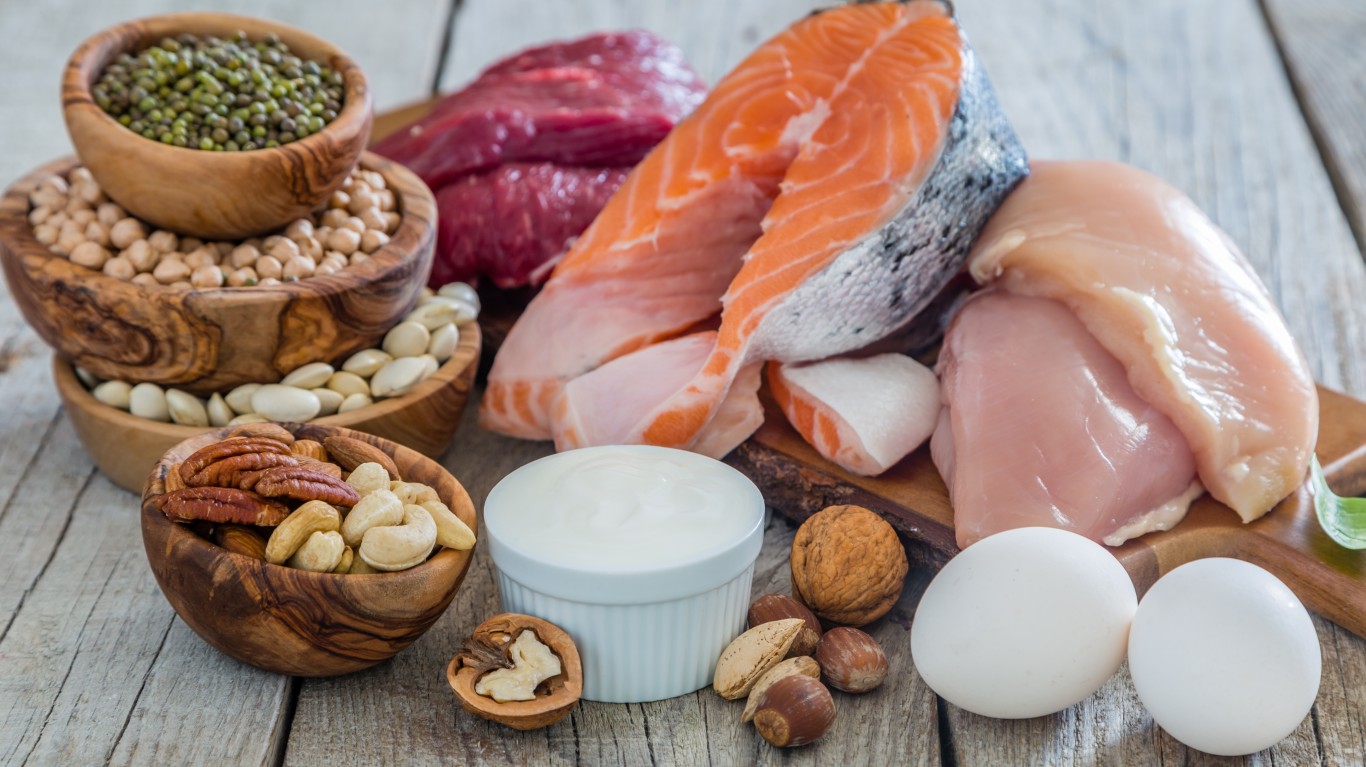
Increase your protein consumption
Protein is an important nutrient that helps keep you fuller for longer — so that you are less likely to want a snack, according to Gorin. “I recommend including a source of protein such as eggs, nuts, seeds, salmon, tofu, or chicken breast with every meal or snack,” she added.
Protein may be effective in reducing abdominal fat specifically, not just total body fat. Some research has suggested that people who ate more and high-quality protein had less central abdominal fat.
[in-text-ad-2]
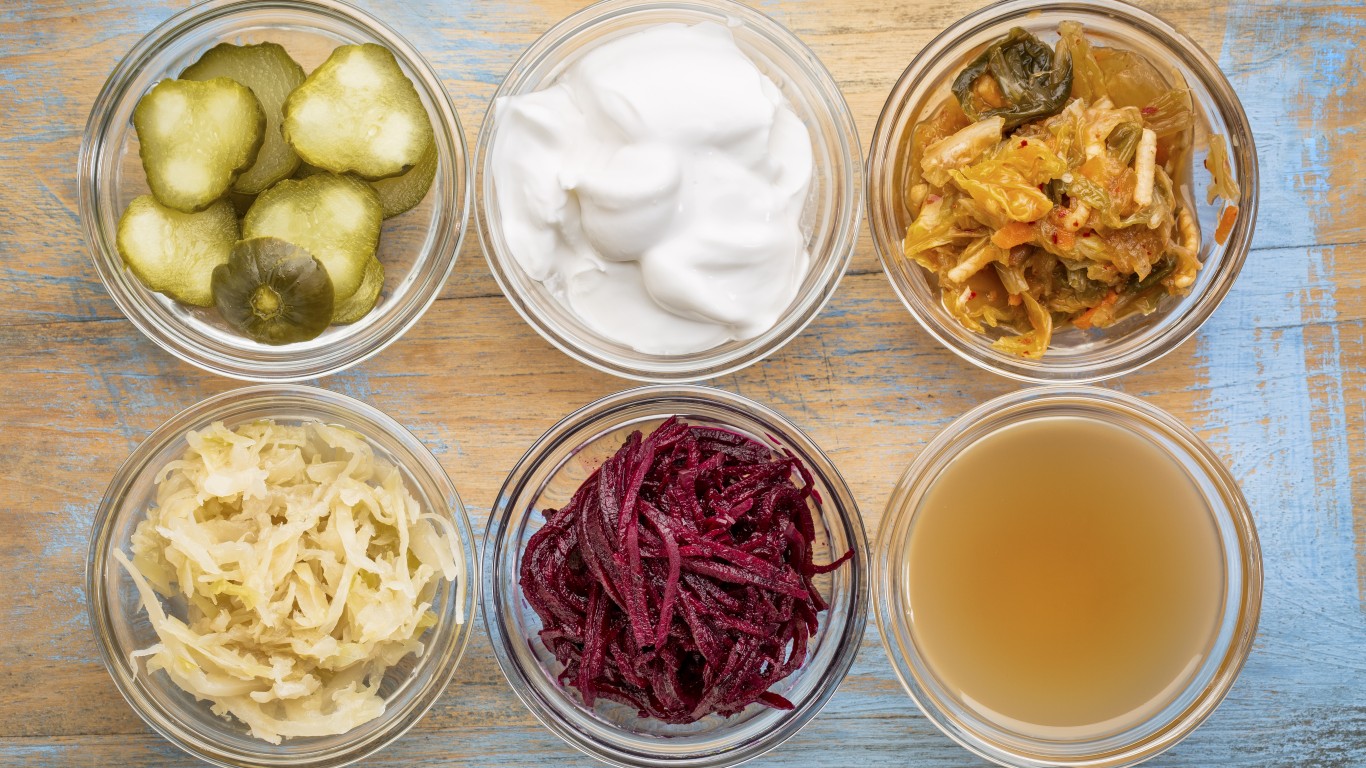
Consider probiotics
Studies examining probiotics’ effect in reducing body weight and Body Mass Index have been done, but the results have been far from definitive. Some research has shown that probiotics help the body by speeding up fat metabolism, improving insulin sensitivity, and reducing inflammation, but the sample sizes were small and there was no follow-up.

Relax
Relaxing is much easier said than done, but it’s very important. Stress may promote the accumulation of visceral fat, according to some research. So, make minimizing stress a priority.
Stress can promote belly fat gain by triggering the adrenal glands to produce cortisol, often called the stress hormone. Sometimes even abdominal fat is called “stress belly.” There is some evidence suggesting that high cortisol levels increase appetite and contribute to abdominal fat storage.
In 20 Years, I Haven’t Seen A Cash Back Card This Good
After two decades of reviewing financial products I haven’t seen anything like this. Credit card companies are at war, handing out free rewards and benefits to win the best customers.
A good cash back card can be worth thousands of dollars a year in free money, not to mention other perks like travel, insurance, and access to fancy lounges.
Our top pick today pays up to 5% cash back, a $200 bonus on top, and $0 annual fee. Click here to apply before they stop offering rewards this generous.
Flywheel Publishing has partnered with CardRatings for our coverage of credit card products. Flywheel Publishing and CardRatings may receive a commission from card issuers.
Thank you for reading! Have some feedback for us?
Contact the 24/7 Wall St. editorial team.
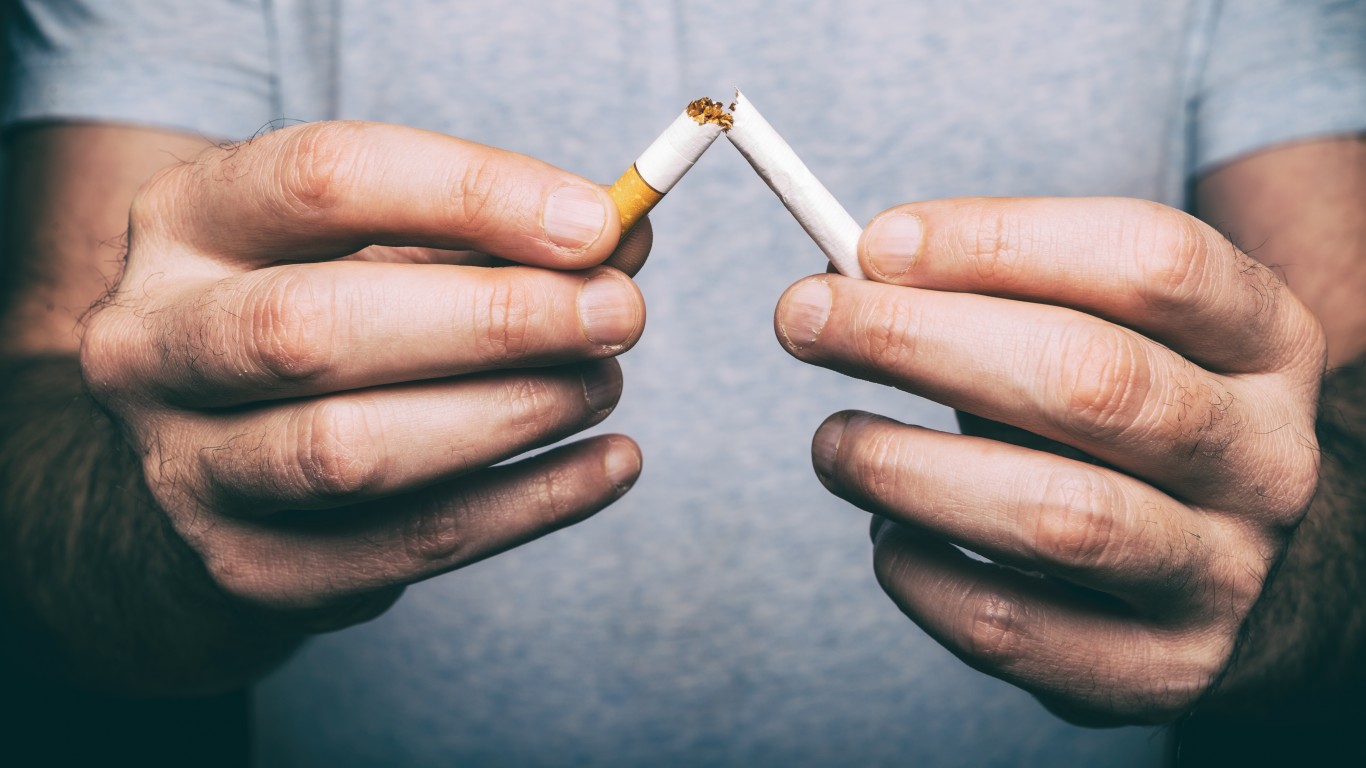 24/7 Wall St.
24/7 Wall St.
